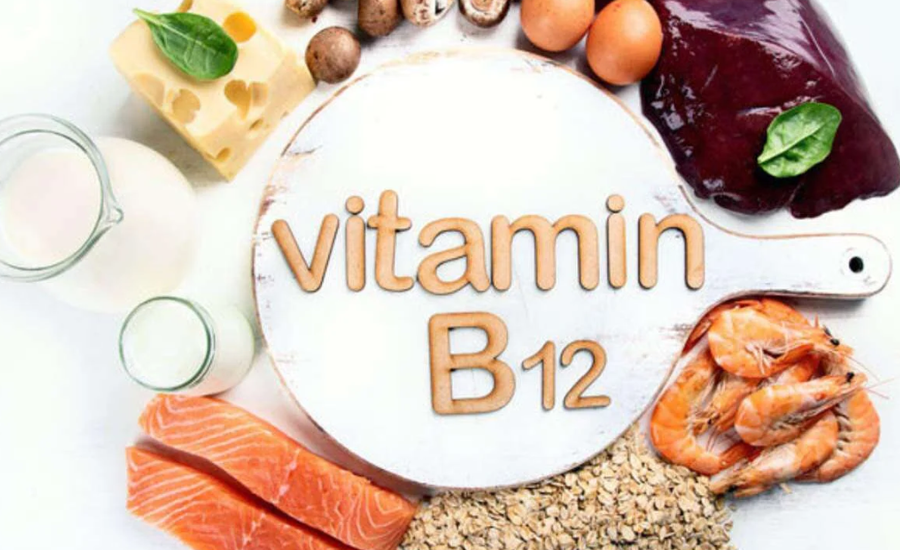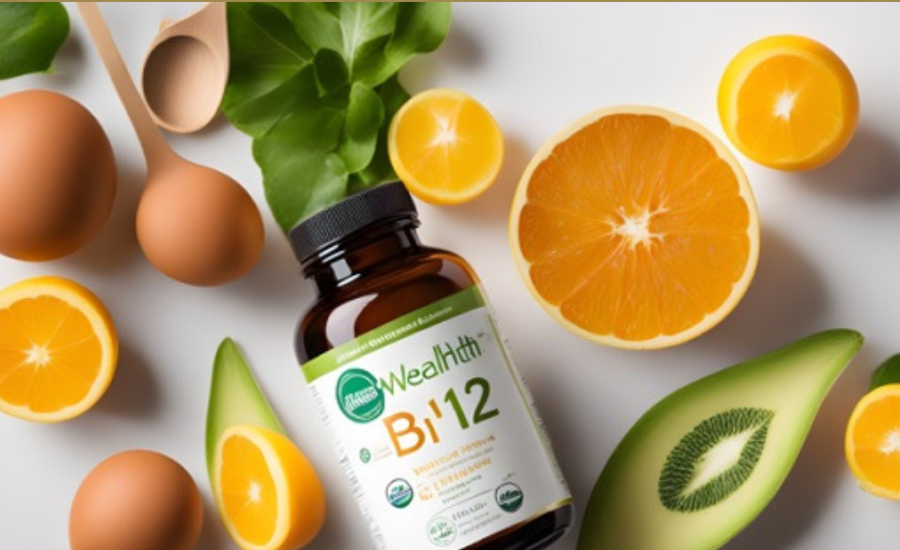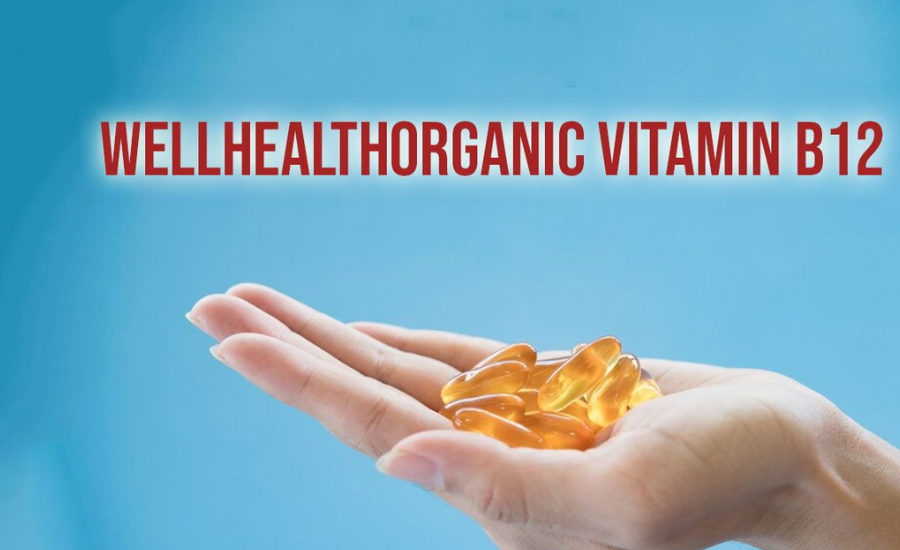Vitamin B12, also known as cobalamin, is an essential nutrient crucial for various bodily functions. Its impact spans from supporting brain health to aiding in red blood cell production. This article delves into the significance of Wellhealthorganic Vitamin B12, highlighting its benefits, sources, and the risks of deficiency, offering a comprehensive guide to maintaining optimal levels of this vital nutrient.
Importance Of Wellhealthorganic Vitamin B12 In The Body

Vitamin B12 plays a fundamental role in maintaining overall health. It is indispensable for producing red blood cells, supporting the nervous system, and synthesizing DNA. Here’s a closer look at its key functions:
1. Boosting Brain And Nervous System Health
Vitamin B12 supports cognitive function and mental clarity. It aids in the maintenance of myelin, a protective layer around nerve cells, essential for efficient nerve signal transmission. This helps prevent neurological issues and supports overall mental well-being.
2. Promoting Red Blood Cell Production
Wellhealthorganic Vitamin B12 is pivotal in producing healthy red blood cells, which transport oxygen throughout the body. A deficiency can lead to megaloblastic anaemia, a condition marked by fatigue, weakness, and pale skin due to insufficient oxygen transport.
3. DNA Synthesis And Prevention Of Birth Defects
This vitamin is integral to DNA synthesis, ensuring genetic information is accurately replicated in cells. For pregnant women, adequate Vitamin B12 levels can help prevent congenital disabilities, particularly those affecting the baby’s brain and spinal cord.
4. Energy Metabolism And Vitality
Vitamin B12 plays a crucial role in converting food into energy. It helps the body metabolize carbohydrates and fats efficiently, ensuring you stay energized and active throughout the day.
5. Eye Health Protection
Studies suggest that Vitamin B12 can reduce the risk of age-related macular degeneration, a condition that impairs central vision in older adults. It works by lowering homocysteine levels, which can damage blood vessels in the retina.
Recommended Daily Intake Of Wellhealthorganic Vitamin B12

The National Institutes of Health (NIH) recommends different daily intake levels based on age and physiological conditions:
- Adults (14 years and older): 2.4 mcg
- Pregnant women: 2.6 mcg
- Breastfeeding mothers: 2.8 mcg
These values ensure that individuals receive adequate Vitamin B12 to maintain their health. However, certain life stages and health conditions may require a higher intake, often achievable through dietary supplements.
Sources Of Wellhealthorganic Vitamin B12
Vitamin B12 naturally occurs in animal-based foods and fortified products. Below are some rich sources:
1. Animal-Based Foods
- Meat: Beef, pork, and lamb are rich in Vitamin B12.
- Poultry and Fish: Chicken, turkey, tuna, and salmon are excellent sources.
- Dairy Products: Milk, cheese, and yogurt provide significant B12 levels.
- Eggs: An affordable and versatile source of Vitamin B12.
2. Fortified Foods
For individuals following plant-based diets, fortified products such as plant-based milk, breakfast cereals, and nutritional yeast offer a viable alternative.
Signs Of Wellhealthorganic Vitamin B12 Deficiency
Deficiency in Vitamin B12 can manifest in various symptoms, often mistaken for other health issues. Common signs include:
- Fatigue and Weakness: Reduced oxygen transport leads to persistent tiredness.
- Neurological Symptoms: Numbness or tingling in the hands and feet, mental fog, and memory issues.
- Mood Changes: Increased risk of depression and mood swings.
- Digestive Issues: Nausea, diarrhea, or loss of appetite.
In severe cases, deficiency can result in irreversible neurological damage or developmental delays in infants.
Who Is At Risk?

Certain populations are more vulnerable to Vitamin B12 deficiency, including:
- Vegans and Vegetarians: Plant-based diets often lack sufficient B12 sources.
- Older Adults: Aging reduces the stomach’s ability to absorb Vitamin B12.
- Individuals with Gastrointestinal Disorders: Conditions like Crohn’s disease or celiac disease hinder nutrient absorption.
- Pernicious Anaemia Patients: This autoimmune condition impairs the stomach’s ability to produce intrinsic factor, necessary for B12 absorption.
Wellhealthorganic Vitamin B12 Supplementation
For individuals unable to meet their Vitamin B12 requirements through diet alone, Wellhealthorganic Vitamin B12 supplements offer a reliable solution. These supplements come in various forms, including tablets, capsules, and injections, catering to different needs and preferences.
When Are Vitamin B12 Injections Recommended?
In cases of severe deficiency or malabsorption, healthcare providers may recommend Vitamin B12 injections. These bypass the digestive system, delivering the nutrient directly into the bloodstream for rapid replenishment.
Maintaining Optimal Vitamin B12 Levels
To ensure optimal health, consider the following strategies:
- Regular Dietary Intake: Include Vitamin B12-rich foods in your diet.
- Supplementation: If at risk of deficiency, consult a healthcare professional about taking Wellhealthorganic Vitamin B12 supplements.
- Routine Health Checkups: Regular blood tests can help monitor Vitamin B12 levels and detect deficiencies early.
Conclusion

Wellhealthorganic Vitamin B12 is indispensable for maintaining physical and mental well-being. By understanding its benefits, sources, and the risks associated with deficiency, individuals can take proactive steps to ensure adequate intake. Whether through a balanced diet or supplementation, maintaining optimal Vitamin B12 levels is key to a healthier, more energetic life.
Frequently Asked Questions Related To Wellhealthorganic Vitamin B12: The Vital Nutrient For Optimal Health:
1. What is Vitamin B12, and why is it important?
Vitamin B12, also known as cobalamin, is a water-soluble vitamin essential for various body functions, including the production of red blood cells, nerve health, and DNA synthesis. It plays a crucial role in energy metabolism and maintaining cognitive function.
2. What are the main benefits of Wellhealthorganic Vitamin B12?
- Brain and Nervous System Health: Supports cognitive function and protects nerve cells.
- Red Blood Cell Production: Essential for forming healthy red blood cells, preventing anemia.
- DNA Synthesis: Vital for cell division and DNA replication, preventing birth defects.
- Energy Metabolism: Helps convert food into energy, promoting overall vitality.
- Eye Health: Reduces the risk of age-related macular degeneration.
3. What are the recommended daily intake levels for Vitamin B12?
The recommended daily intake of Vitamin B12 is:
- Adults (14 years and older): 2.4 mcg
- Pregnant women: 2.6 mcg
- Breastfeeding mothers: 2.8 mcg
4. What foods are rich in Vitamin B12?
- Animal-based foods: Beef, poultry, fish, eggs, dairy products.
- Fortified foods: Plant-based milk, breakfast cereals, and nutritional yeast.
5. How can I tell if I’m deficient in Vitamin B12?
Symptoms of Vitamin B12 deficiency include:
- Fatigue and weakness
- Neurological symptoms like numbness, tingling, and memory issues
- Mood changes and increased risk of depression
- Digestive problems like nausea or loss of appetite
Stay in the know with the latest news and updates on Nftrandomize.co.uk
